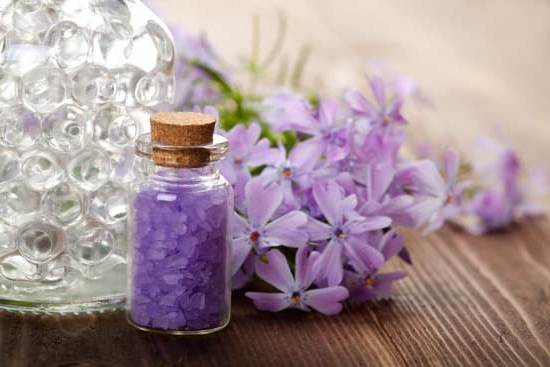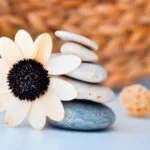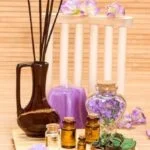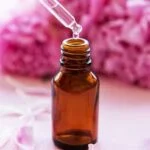Aromatherapy is a popular alternative healing practice that utilizes essential oils to promote well-being and health. This holistic approach focuses on the connection between the mind, body, and spirit, aiming to restore balance and harmony within the individual. Essential oils are extracted from plants, flowers, and herbs, known for their therapeutic properties that can have a profound impact on both physical and emotional well-being.
The practice of aromatherapy dates back thousands of years ago, with ancient civilizations recognizing the healing power of plant extracts. Over time, aromatherapy has evolved into a sophisticated practice with a wide array of applications in modern wellness practices. By understanding how essential oils interact with our bodies on a cellular level, we can harness their benefits for various ailments and conditions.
One of the key principles of aromatherapy is its holistic nature – treating the individual as a whole rather than focusing solely on symptoms. This integrative approach acknowledges the interconnectedness of physical health, emotional well-being, and spiritual growth. By addressing root causes of imbalance through the use of essential oils, aromatherapy seeks to promote overall wellness in a natural and non-invasive way.
The History of Aromatherapy
Aromatherapy has a rich history that dates back thousands of years, with origins in ancient civilizations such as Egypt, China, and India. The use of aromatic plant materials for healing and spiritual purposes can be traced back to these ancient cultures, where essential oils were extracted from plants and used in rituals, ceremonies, and medicinal treatments. In fact, the concept of aromatherapy as we know it today is deeply rooted in the traditional practices of these early civilizations.
Origins of Aromatherapy
One of the earliest recorded uses of aromatherapy can be found in ancient Egypt, where aromatic oils were used in religious ceremonies and mummification rituals. The Egyptians believed in the power of essential oils to heal both the body and the spirit, and they used them to treat various ailments and promote overall well-being.
Similarly, in China, herbal medicine and aromatherapy have been intertwined for centuries, with traditional Chinese medicine incorporating the use of aromatic plants and oils to restore balance and harmony within the body.
Evolution of Aromatherapy
The modern practice of aromatherapy began to take shape in the early 20th century with the work of French chemist René-Maurice Gattefossé, who coined the term “aromatherapie” after accidentally discovering the healing properties of lavender oil. Gattefossé’s research laid the foundation for the scientific study of essential oils and their therapeutic benefits.
Over time, aromatherapy gained popularity in Europe and eventually spread to other parts of the world as a holistic approach to health and wellness. Today, aromatherapy continues to evolve as researchers explore new applications for essential oils and their potential impact on physical, emotional, and spiritual well-being.
Aromatherapy vs Traditional Medicine
When it comes to treating various health issues, one of the primary differences between aromatherapy and traditional medicine is the approach they take towards healing. Aromatherapy focuses on using essential oils extracted from plants to promote physical and psychological well-being.
These essential oils are believed to have therapeutic properties that can help alleviate symptoms and improve overall health. Aromatherapists often take a holistic approach, considering the individual as a whole – mind, body, and spirit – rather than just focusing on specific symptoms or conditions.
On the other hand, traditional medicine typically involves the use of pharmaceuticals or surgical interventions to treat specific ailments or conditions. This approach tends to be more symptom-focused, targeting the particular issue at hand rather than addressing underlying causes or considering the individual’s overall well-being. While traditional medicine has its benefits and can be highly effective for certain conditions, some argue that it may overlook the interconnectedness of physical, mental, and emotional health.
To better understand the difference between aromatherapy and traditional medicine, here are some key points of comparison:
- Aromatherapy focuses on natural remedies derived from plants, whereas traditional medicine often relies on synthetic compounds.
- Aromatherapy aims to promote holistic well-being by considering all aspects of a person’s health, while traditional medicine may target specific symptoms or conditions.
- Aromatherapy emphasizes self-care and empowerment through self-healing practices, while traditional medicine may involve more passive treatment approaches guided by healthcare professionals.
Overall, while both aromatherapy and traditional medicine have their place in healthcare practices, understanding their differences can help individuals make informed choices about their own health and well-being. By recognizing the unique strengths and approaches of each modality, individuals can create a more comprehensive approach to their health that addresses both physical symptoms and emotional well-being.
The Science Behind Aromatherapy
Aromatherapy has been practiced for centuries as a natural healing remedy that utilizes essential oils extracted from plants to promote physical, emotional, and psychological well-being. The key to understanding how aromatherapy works lies in the science behind essential oils and their impact on the body and mind.
Essential oils are highly concentrated plant extracts that contain powerful therapeutic properties. When these essential oils are inhaled or absorbed through the skin, they can interact with the body on a cellular level, triggering various physiological and psychological responses.
Essential Oils and the Olfactory System
One of the primary ways in which essential oils impact the body is through the olfactory system, or sense of smell. The olfactory system is closely linked to the limbic system in the brain, which plays a crucial role in emotional regulation and memory processing.
When we inhale essential oils, their aromatic molecules travel through the nasal passages to the olfactory receptors, sending signals to the limbic system. This process can evoke emotional responses, trigger memories, and even influence hormonal balance.
The Role of Chemistry in Aromatherapy
The chemical composition of essential oils also plays a significant role in how they affect the body. Each essential oil contains a unique combination of chemical compounds that contribute to its specific therapeutic properties. For example, some essential oils contain sedative compounds that promote relaxation and sleep, while others have invigorating compounds that can boost energy levels. By understanding the chemistry of essential oils, aromatherapists can tailor blends to target specific health concerns or mood imbalances.
Physiological Effects of Essential Oils
In addition to their psychological effects, essential oils also have direct physiological effects on the body. When applied topically or ingested (under proper guidance), certain essential oils can have analgesic, anti-inflammatory, antimicrobial, or antioxidant properties.
For example, lavender oil is known for its calming effects on both mind and body, while peppermint oil is often used for its pain-relieving and energizing properties. Understanding how different essential oils interact with specific bodily systems is crucial for harnessing their full therapeutic potential.
The Benefits of Aromatherapy
Aromatherapy is a holistic approach to health and well-being that utilizes the power of essential oils extracted from plants to promote physical, emotional, and psychological healing. These natural oils are believed to have therapeutic properties that can positively impact the body and mind when inhaled or applied topically. The practice of aromatherapy dates back centuries and has been used in various cultures around the world for its healing benefits.
There are numerous benefits associated with aromatherapy, ranging from relieving stress and anxiety to boosting mood and improving sleep quality. Essential oils like lavender, chamomile, peppermint, and eucalyptus are commonly used in aromatherapy for their calming, energizing, and soothing effects. When these oils are diffused into the air or diluted and applied to the skin, they can help alleviate symptoms of various ailments and promote overall relaxation and well-being.
One of the key aspects that sets aromatherapy apart from traditional medicine is its focus on treating the whole person – mind, body, and spirit. By addressing not just physical symptoms but also emotional and mental well-being, aromatherapy aims to provide a more complete approach to healing.
This holistic perspective recognizes the interconnectedness of all aspects of an individual’s health and seeks to restore balance and harmony on multiple levels. Aromatherapy truly embodies a holistic approach to wellness by considering the overall well-being of an individual rather than just focusing on one aspect of health.
Is Aromatherapy Holistic? Exploring the Connection Between Mind, Body, and Spirit
Aromatherapy is often considered a holistic practice due to its approach in treating the mind, body, and spirit as interconnected aspects of overall health. The use of essential oils in aromatherapy is believed to not only address physical symptoms but also to promote emotional well-being and spiritual balance. By harnessing the natural healing properties of plants, aromatherapy seeks to create harmony within the individual on multiple levels.
When essential oils are inhaled or applied to the skin, they can affect the limbic system in the brain, which plays a role in emotions, behaviors, and memory. This direct interaction with the brain is why certain scents can evoke specific feelings or memories. Additionally, when essential oils are absorbed into the bloodstream through inhalation or topical application, they can have physiological effects on the body that contribute to overall wellness.
The holistic nature of aromatherapy also extends to its emphasis on individualized treatment based on each person’s unique needs and preferences. Aromatherapists often tailor blends of essential oils to address specific issues such as stress relief, sleep improvement, pain management, or mood enhancement. This personalized approach takes into account not only physical symptoms but also emotional states and mental well-being.
| Aromatherapy Benefits | Details |
|---|---|
| Emotional Well-Being | Helps promote relaxation, reduce anxiety, and improve mood |
| Physical Health | May aid in pain relief, inflammation reduction, and immune system support |
| Spiritual Connection | Can enhance mindfulness practices and spiritual awareness through aromas |
Incorporating Aromatherapy Into Your Daily Routine
Aromatherapy can be seamlessly integrated into daily routines to promote overall well-being and enhance one’s quality of life. By incorporating essential oils into various aspects of your day, you can experience the therapeutic benefits that they offer.
One practical tip for incorporating aromatherapy into your daily routine is through the use of a diffuser. Diffusing essential oils not only fills the air with delightful scents but also allows for easy inhalation, which can positively impact your mood and emotions throughout the day.
Another effective way to incorporate aromatherapy into your daily routine is by adding a few drops of essential oils to your skincare products or creating DIY beauty treatments. From facial serums to body scrubs, essential oils can provide nourishment and rejuvenation for the skin while also offering aromatherapeutic benefits. Additionally, using essential oils in massage oils or bath salts can create a relaxing and soothing experience that promotes relaxation and stress relief after a long day.
Furthermore, practicing mindfulness and intentionality when using aromatherapy can amplify its holistic effects on the mind, body, and spirit. Whether it’s through creating a calming atmosphere with lavender essential oil before bedtime or using citrus scents to boost energy levels during work hours, being intentional about incorporating aromatherapy into your daily routine can help you feel more balanced and grounded throughout the day.
In essence, by making aromatherapy an integral part of your daily habits, you are actively nurturing your well-being in a holistic manner that encompasses physical, emotional, and spiritual aspects.
Aromatherapy for Specific Needs
Aromatherapy has been used for centuries as a natural remedy to promote relaxation, reduce anxiety, and improve overall well-being. Essential oils derived from various plants are known for their therapeutic properties that can help address specific needs such as stress relief and sleep improvement.
The practice of aromatherapy involves using these essential oils in a variety of ways, including inhalation, topical application, and diffusion. One of the key aspects that sets aromatherapy apart is its holistic approach to healing, focusing on the connection between mind, body, and spirit.
One of the most common uses of aromatherapy is for stress relief. Essential oils like lavender, chamomile, and bergamot are known for their calming effects on the nervous system, helping to alleviate feelings of tension and promoting relaxation.
By inhaling these soothing scents or using them in a massage oil, individuals can experience a sense of calm and peace in times of stress. Additionally, the act of slowing down to engage with these scents can also provide a mindfulness practice that further enhances the relaxation response.
Another popular application of aromatherapy is for improving sleep quality. Essential oils like lavender and cedarwood are valued for their sedative properties that can help induce a state of restful sleep.
Diffusing these oils in the bedroom or adding a few drops to a nighttime bath can create a relaxing environment conducive to falling asleep faster and staying asleep longer. The gentle aroma not only signals to the body that it’s time to unwind but also supports deep relaxation that is essential for a good night’s rest.
| Aromatherapy Benefits | Examples |
|---|---|
| Stress Relief | Lavender, Chamomile, Bergamot |
| Sleep Improvement | Lavender, Cedarwood |
Myths and Misconceptions About Aromatherapy
Aromatherapy, often misunderstood and underestimated, is a holistic approach that encompasses the connection between mind, body, and spirit. While some may dismiss it as simply a pleasant fragrance, aromatherapy goes beyond just pleasant scents. The use of essential oils in aromatherapy has been shown to have profound effects on both physical and psychological well-being. By stimulating the olfactory system, essential oils can influence emotions, memories, and even promote relaxation or alertness.
One common misconception about aromatherapy is that it is only effective for minor ailments or used solely for relaxation purposes. However, research has shown that certain essential oils possess antibacterial, antifungal, and anti-inflammatory properties. These therapeutic benefits make aromatherapy a versatile tool that can be used to address a wide range of health concerns such as stress relief, improved sleep quality, pain management, and even boosting cognitive function.
In conclusion, aromatherapy’s holistic nature extends far beyond just the physical aspects of health. By integrating the power of scent into our daily routines and self-care practices, we can tap into the full potential of essential oils to support not just our bodies but also our mental and emotional well-being.
As we continue to explore the benefits of aromatherapy and dispel myths surrounding this ancient practice, it becomes clearer that aromatherapy truly is a holistic approach that nurtures the mind-body-spirit connection for overall wellness.
Frequently Asked Questions
Is Aromatherapy Medically Proven?
Aromatherapy is not medically proven to cure or treat medical conditions. While it can have a positive impact on mood and relaxation, the scientific evidence supporting its effectiveness in treating ailments is limited.
What Type of Practice Is Aromatherapy?
Aromatherapy is considered a holistic practice that involves using essential oils derived from plants to promote physical, emotional, and mental well-being. It is often used in conjunction with other forms of alternative medicine such as massage therapy or acupuncture.
Is Aromatherapy a Naturopathy?
Aromatherapy is not classified as naturopathy, which is a distinct form of alternative medicine that focuses on treating the whole person using natural therapies. Naturopathy encompasses various modalities like herbal medicine, nutritional counseling, and lifestyle changes, whereas aromatherapy specifically utilizes essential oils for therapeutic purposes.

Are you looking for a natural way to improve your health and wellbeing?
If so, aromatherapy may be the answer for you.





